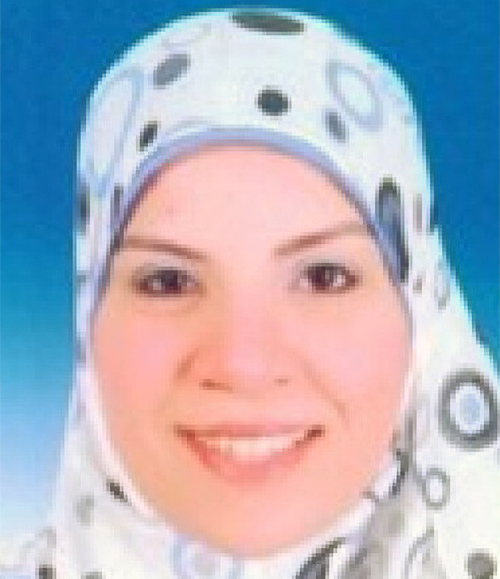
Elected: 2020
Country (Nationality)
Egypt
Discipline
Chemical Sciences
Bio
Prof. Amany Mohamed Fekry is a professor of physical chemistry, department of chemistry, Faculty of Science, Cairo University in 2017. I have more than 100 publications in different international journals, a review, 3 book chapters and 1 book. I Have attended 12 national and international conferences. My H-index is 33 with 2538 citations. I have supervised more than 20 MSC, Ph. D. students. I have reviewed more than 100 articles in different international journals. Stanford University identifies me in the top 2 % of Scientists worldwide in 2020 and 2021.
I have been awarded an international award called Obada-Prize for distinguished researchers – 2021 winners. I have been awarded University Encouraging Award (Basic Sciences), Cairo University, 2010; Country Encouraging Award (Basic Sciences), Egypt, 2012 and Academic Excellence Award (Basic Sciences), Cairo University, 2020. I have been granted STDF (Egypt - France cooperation) for a research stay in Electroanalytical group (ELAN) in the Laboratory of physical Chemistry and Microbiology for the environment (LCPME), Lorraine University, Nancy-France. I have got a postdoctor in GeoResources Lab, Lorraine university - France on experimental and theoretical studies on the flotation of oxidized minerals, Fine Future Project – GeoResources Department, Lorraine University, Nancy-France till now.
I’m a member of the Corrosion Association from 2005 to 2010, Polymers Association in 2018. I’m selected as a member on the Basic Sciences Council from the qualitative councils of the Academy of Scientific Research from 11 june 2018 to 10 June 2021 and I’m selected again for this membership at 29 september 2021. I’m a member of the NSP Scientific Academy (international): Ref. No. NSP-151134 at December 2020-2021. My research work contributes mainly to solving many biological and industrial problems. My main subject is to prepare advanced nanoparticles and nano-coatings; and their applications in different areas like Corrosion, Sensors, Fuel cells and catalysis. I know different techniques like Electrochemical Impedance spectroscopy, Potentiodynamic polarization, Cyclic Voltammetry, Scanning Electron Microscopy, Raman Spectroscopy etc.